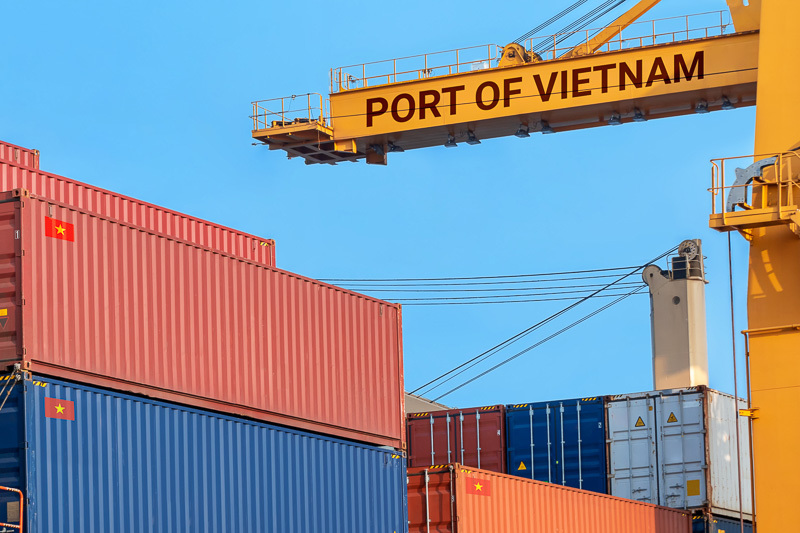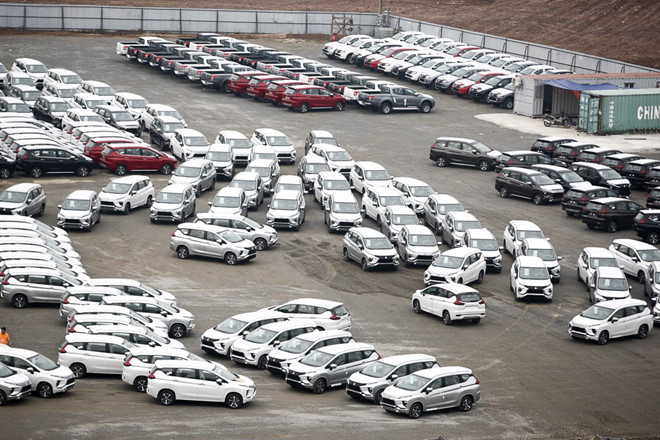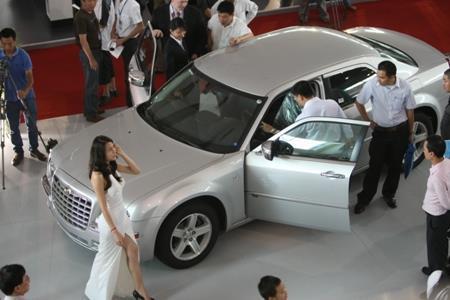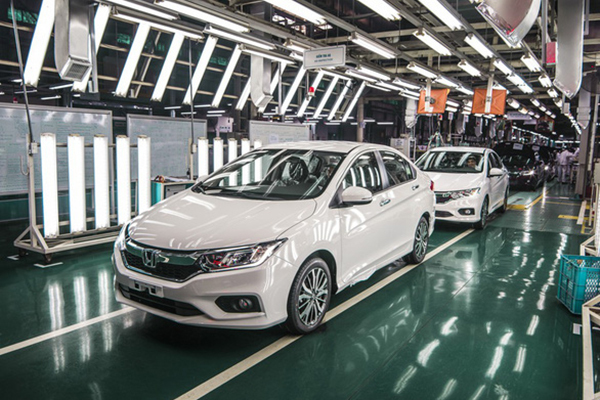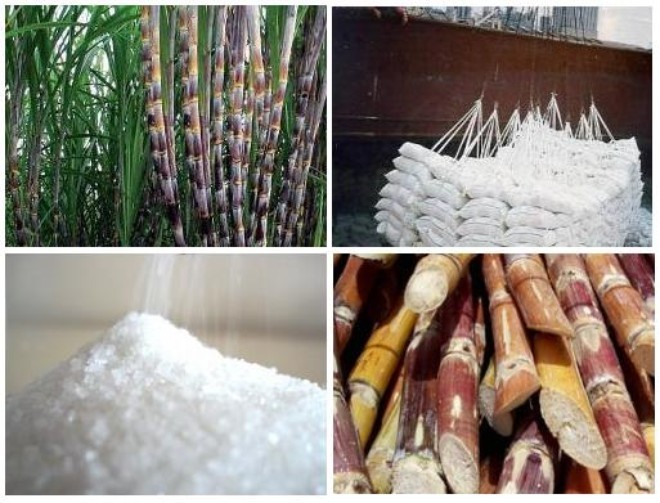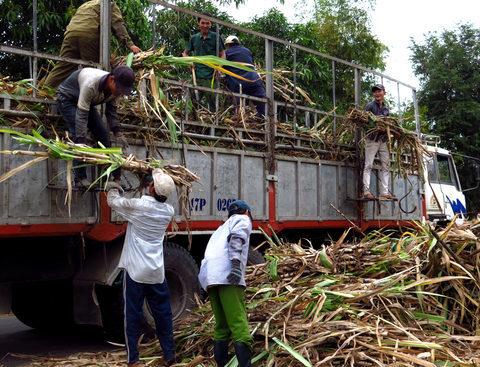- © Copyright of Vietnamnet Global.
- Tel: 024 3772 7988 Fax: (024) 37722734
- Email: [email protected]
AFTA
Update news AFTA
Efforts to improve business environment to be ramped up
The local business community anticipates that the Government will take specific and efficient measures aimed at immediately resolving bottlenecks that hinder their operations, said Vu Tien Loc, chairman of VCCI.
Thailand dominates Vietnam's car imports
Thailand has continued to hold a large share of Vietnam's car imports according to initial statistics of the General Department of Vietnam Customs.
Cheap cars from Thailand, Indonesia expected to flow into Vietnam
 More and more cheap cars will flood the Vietnamese market in upcoming months as automobile manufacturers in Thailand and Indonesia have urged their governments to apply measures to boost car exports.
More and more cheap cars will flood the Vietnamese market in upcoming months as automobile manufacturers in Thailand and Indonesia have urged their governments to apply measures to boost car exports.
When will the Vietnamese automobile dream come true?
 Vietnam still has to import car parts for domestic assembling. As a result, the production cost is high and domestically made products remain less competitive than imports.
Vietnam still has to import car parts for domestic assembling. As a result, the production cost is high and domestically made products remain less competitive than imports.
Vietnam passenger car import surges 150% in Jan-Oct
 This resulted in Vietnam importing an average of 9,230 cars per month and over 300 cars per day, and car imports of nearly US$1.75 billion during the period, up 250% year-on-year.
This resulted in Vietnam importing an average of 9,230 cars per month and over 300 cars per day, and car imports of nearly US$1.75 billion during the period, up 250% year-on-year.
Vietnam to spend $4.3 billion to develop automobile industry
 Experts think the plan to spend $4.3 billion to develop the automobile industry will be in vain.
Experts think the plan to spend $4.3 billion to develop the automobile industry will be in vain.
Sugar industry experiencing tough days
 Comprehensive measures are needed to save the sugar industry.
Comprehensive measures are needed to save the sugar industry.
Vietnamese told not to expect high-end cars to become cheaper
 Asked about the import tariff on luxury cars from Europe after the EVFTA takes effect, the Ministry of Industry and Trade (MOIT) said the competitiveness of EU sourced cars would improve.
Asked about the import tariff on luxury cars from Europe after the EVFTA takes effect, the Ministry of Industry and Trade (MOIT) said the competitiveness of EU sourced cars would improve.
Sugar industry: some die, others thrive
 The sugar industry is experiencing stormy days as prices have dropped dramatically. However, some companies are thriving and plan to ‘swallow’ their rivals.
The sugar industry is experiencing stormy days as prices have dropped dramatically. However, some companies are thriving and plan to ‘swallow’ their rivals.
Sugar companies in danger of going bankrupt
 Sugar companies are in such danger that the Ministry of Agriculture & Rural Development (MARD) on April 3 had to organize a meeting with the sugar association to discuss ways to rescue them.
Sugar companies are in such danger that the Ministry of Agriculture & Rural Development (MARD) on April 3 had to organize a meeting with the sugar association to discuss ways to rescue them.
Automobile joint ventures return to to car assembling
After a period of focusing on importing cars to sell domestically, foreign invested automobile manufacturers have returned to their initial work – assembling cars domestically.
Automakers’ shift to selling cars lowers tax collections
Domestic automobile joint ventures are focusing on importing cars for local sale rather than manufacturing, raising concern about the loss of revenue to local budgets.
Big sale campaigns cannot boost sales of new, used cars
VietNamNet Bridge - Brand new cars are being sold at hundreds of millions of dong lower than initial prices, while used cars remain unsold.
Vietnamese auto market: expensive cars sell better
VietNamNet Bridge - For most Vietnamese consumers, a house and car are two of the most valuable assets.
Industry Ministry admits failure in developing auto industry. So what's next?
The Ministry of Industry and Trade has admitted that the plan to develop an automobile industry of Vietnam has failed, but it still insists on protecting domestic assembling enterprises which work for foreign invested enterprises.
Vietnamese automakers dream of cars rolling on streets of Myanmar, Philippines
Vietnamese auto manufacturers are trying to increase the localization ratios in their products in order to enjoy preferential tariffs when exporting their cars to ASEAN countries.
Many Vietnamese plastics firms change hands, silently
VietNamNet Bridge - Many Vietnamese plastics firms have fallen into foreign hands, while others are in a state of anxious suspense because they may be swallowed up one day.
The back-up plan of domestic automobile manufacturers
Contrary to all predictions, automobile manufacturers have set modest targets for this year’s business plans. After a two-year boom, the automobile market is expected to be more quiet in 2017.
Vietnam will not retain Japanese automakers at any cost: economists
VietNamNet Bridge - Though appreciating Japanese support to Vietnam’s industries, economists say that Japanese automobile manufacturers’ claims for investment incentives are unreasonable.
Manufacturers warn sugar industry faces challenges in 2017
VietNamnet Bridge - Though the sugar industry enjoys benefits from protectionism, manufacturers are still complaining that business is tough because of smuggling.
